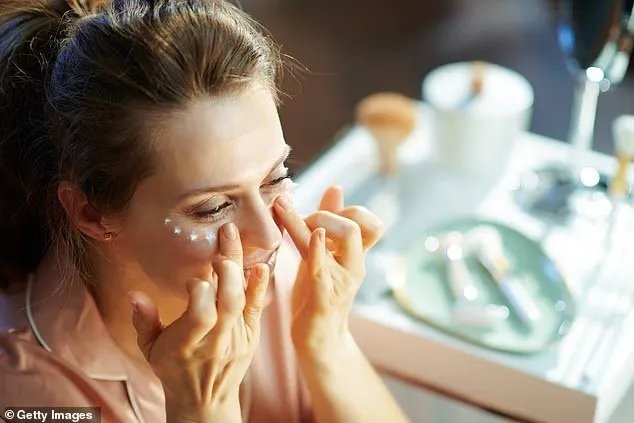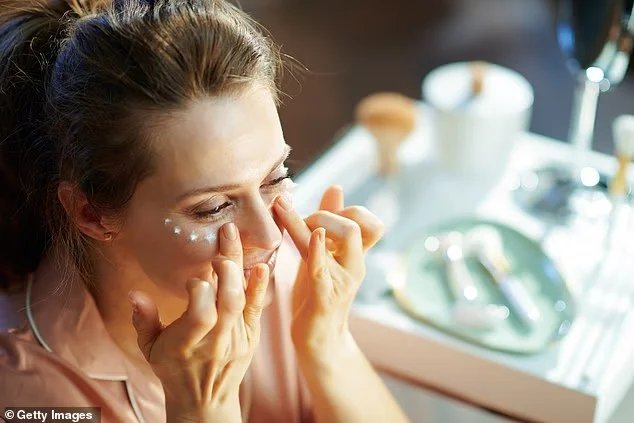Are SPFs making you look older? We’re told to wea…

uaetodaynews.com — Are SPFs making you look older? We’re told to wear them no matter the weather – but experts warn how some sunscreen formulas may be ‘accentuating wrinkles’ this winter
We’re rigorously told to wear it come rain or come shine to ensure younger, smoother skin – but skincare experts have warned that certain SPF formulas may be accentuating wrinkles in the dry, colder weather.
Speaking to the Daily Mail, aesthetics doctors and practitioners said chemical sunscreen formulas can amplify flaky and dehydrated skin; however, cautioned that this is no excuse to skip out on the crucial step.
They contain substances that absorb UV rays before they reach the skin, diffusing them in a chemical reaction – which could be making your face feel tighter.
In contrast, mineral sunscreens, made of ingredients such as zinc oxide or titanium dioxide, provide a physical barrier preventing UV rays from hitting the skin.
‘Wearing sunscreen is one of the best anti-ageing things you can do for your skin, even during the winter months,’ said Amish Patel of Intrigue Cosmetic Clinic.
‘However, some matte chemical sunscreens can amplify the result of dry winter skin and accentuate wrinkles, flaky and dehydrated skin, making the skin perhaps look superficially older.’
He stressed, though, that swapping out for a different product will make for little difference ‘until the underlying issues are resolved’.
‘Using non-matte sunscreen during the winter is a good alternative,’ he shared.

We’re rigorously told to wear it come rain or come shine to ensure younger, smoother skin – but skincare experts have warned that certain SPF formulas may be accentuating wrinkles in the dry, colder weather. Stock image used
‘Drinking more water and staying hydrated will improve the appearance of dry skin and opt for a cream or lotion based formulation to boost hydration in the skin.
‘Your winter skincare should embrace deeper hydration and don’t forget to regularly exfoliate to help remove flaky skin and dead skin cells which will make your skin look older.’
Amish also suggested layering a serum under your moisturiser – and applying it to damp warm skin – as well as waiting at least 30 seconds before going in with the SPF to ‘help lock in moisture’.
Elsewhere, Dr Jessica Halliley explained why the formula may lead to dryer looking skin.
‘There has been some debate around whether chemical sunscreens could contribute to skin ageing,’ she explained.
‘These formulas work by absorbing UV rays and converting them into heat, which can sometimes trigger free radical activity in the skin.
‘Over time, that oxidative stress may affect collagen and elastin, leading to fine lines and loss of firmness.
‘Chemical filters can also be irritating for sensitive skin types, which in turn can compromise the skin barrier and accelerate signs of ageing.’
However she too sternly implored that SPF use is a must.
‘Daily sunscreen use is non-negotiable for protecting against UV damage, which is still the number one cause of premature ageing,’ she continued.
‘For those concerned about irritation or oxidative stress, mineral sunscreens containing zinc oxide or titanium dioxide are a great alternative.
‘These sit on the surface of the skin and physically block UV, while also being gentler and less likely to generate free radicals.’
Elsewhere Bruce Green, Chartered Chemist and Founder of SOS Serum Skincare, said the key is adapting your whole routine to a dryer, chillier climate is key.
‘Apply a hydrating serum and nourishing moisturiser underneath, and choose a sunscreen that also contains hydrating or barrier-supporting ingredients like vitamin E, glycerin or hyaluronic acid, such as SOS SPF50,’ he explained.
‘Ultimately, the best sunscreen is the one you’ll wear every day – your skin will thank you for it.’
Some pros also remarked that it’s important not to demonise chemical SPFs – and rather, simply know what fits your skin type best.
Dr Naomi Mackle, founder of Adare Dermatology, cautioned that ‘there are many myths about chemical sunscreens circulating on social media’.
‘There is no known medical evidence supporting claims that they are harmful. All allegations have been taken seriously, and clinical trials have been conducted to verify or disprove these theories,’ she shared.
‘There are concerns about certain chemical filters damaging the coral reef, so for those worried about this, a physical sunscreen is a good alternative.
‘However, it’s difficult to prove causation, as many environmental factors and chemicals are present in our surroundings, further research is therefore needed.
‘Chemicals in sunscreen may cause or worsen dermatitis but this would disappear after withdrawal of the particular sunscreen.
‘For those who have a very sensitive skin, physical or mineral sunscreens won’t irritate the skin. This may therefore be a better choice.’
And speaking to the Daily Mail Dr Barbra Kubicka, founder of Clinicbe, revealed her top product recommendations.
‘Some chemical sunscreens can contribute to dryness, particularly in colder months when the skin barrier is already under stress from central heating and harsh weather,’ she shared.
‘By absorbing UV rays and generating heat, they may also increase sensitivity and irritation in vulnerable skin types. Over time, if dryness and irritation are not addressed, the skin can appear more lined, dull and aged.
‘This doesn’t mean chemical SPFs are harmful for everyone, but it highlights the importance of choosing the right formula and supporting the skin barrier with hydrating ingredients and moisturisers alongside daily sun protection.’
For a budget-friendly pick, she suggested the E45 SPF50 Sensitive Sun Cream for £13 – which is ‘simple, gentle, hydrating, good for dry or eczema-prone skin’.
Another top selection was Clinique’s £21 Mineral Sunscreen Fluid SPF50, which is ‘mineral, fragrance-free, lightweight, suitable for sensitive or retinol-treated skin’.
Barbara’s French pharmacy favourite was the La Roche-Posay Anthelios UVAir SPF50+ which is £25.
She praised it as a ‘lightweight chemical/hybrid option with excellent UVA protection’ that ‘sits well under makeup’.
A mineral fluid one for sensitive skin, she shared, is the Avène Mineral Fluid SPF50+ for £15.40.
The pro also said the Clinicbe Be Sun Protected Daily Tinted SPF50, £49, is a great ‘multi-tasker’.
‘A highly effective photo-stable broad spectrum, lightweight physical sunscreen, containing clinically proven filters to protect the skin against harmful UV rays,’ she continued.
‘For winter, choose a formula that feels comfortable and hydrating, this makes it easier to use daily, which is the real key to protection.’
Disclaimer: This news article has been republished exactly as it appeared on its original source, without any modification.
We do not take any responsibility for its content, which remains solely the responsibility of the original publisher.
Disclaimer: This news article has been republished exactly as it appeared on its original source, without any modification.
We do not take any responsibility for its content, which remains solely the responsibility of the original publisher.
Author: uaetodaynews
Published on: 2025-10-22 02:33:00
Source: uaetodaynews.com


